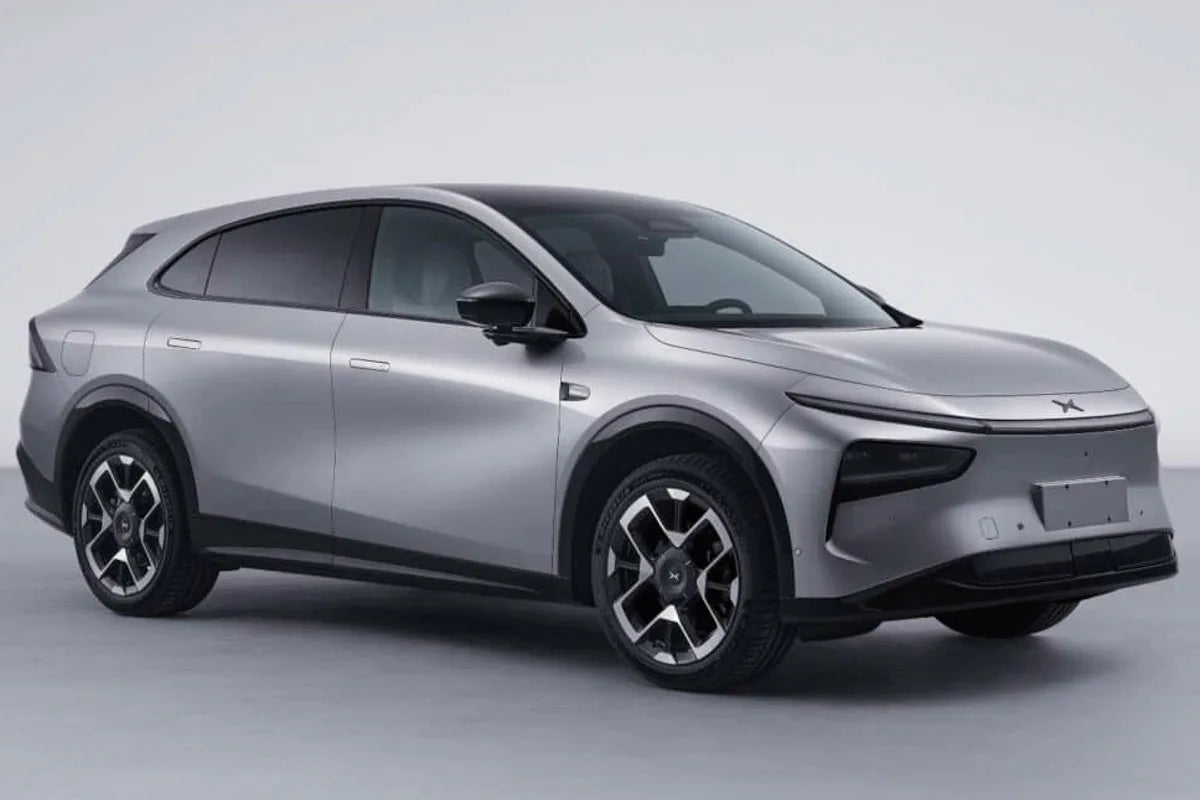Chinesische Autohersteller drängen nach Europa
Auf der IAA Mobility in München, Europas größter Automesse, hinterließen chinesische Marken einen starken Eindruck . Mehr als ein Dutzend Autohersteller präsentierten ihre neuesten Modelle. Während die Zahl der Akteure hoch ist und der europäische Automarkt in den letzten Jahren schrumpft, sind die Umsätze von Unternehmen wie MG und BYD zeigen, dass erschwingliche chinesische Elektrofahrzeuge immer beliebter werden. Unter diesen Neulingen entwickelt sich Xpeng zu einem ernstzunehmenden Konkurrenten .
Xpengs Aufstieg vom Startup zum Global Player
Xpeng wurde Mitte der 2010er Jahre gegründet und begann mit dem kompakten SUV G3. Mit der Limousine P7 und dem SUV G9, die als Konkurrenz zu Teslas Model S und Model X konzipiert wurden , stieg das Angebot schnell in den gehobenen Bereich ein. Seitdem wurde die Produktpalette um den Minivan X9, die Crossover G6 und G7 sowie zuletzt den kompakten Liftback Mona erweitert.
Über die Automobilbranche hinaus positioniert sich Xpeng als Technologieunternehmen und präsentiert fortschrittliche Fahrerassistenzsysteme, humanoide Roboter und sogar ein Konzept für ein fliegendes Auto. Volkswagen ist eine Partnerschaft mit Xpeng eingegangen, um gemeinsam Software und elektrische Plattformen in China zu entwickeln – eine Zusammenarbeit, die die Glaubwürdigkeit des Unternehmens unterstreicht.

Warum Xpeng besser zu den europäischen Märkten passt
Einige chinesische Marken wie Nio konzentrieren sich auf Luxus-Elektrofahrzeuge, deren Preis mit dem deutscher Premiumautos mithalten kann , und beschränken ihre Verkäufe auf kleine Stückzahlen. Im Gegensatz dazu hat Xpeng Modelle auf den Markt gebracht, die für europäische Käufer besser dimensioniert und erschwinglicher sind.
Der Xpeng G6 SUV , ähnlich groß wie das Tesla Model Y , ist etwas günstiger, bietet aber mehr Funktionen und ein ruhigeres Fahrgefühl. Diese Positionierung hat dazu beigetragen, dass Xpeng seine Verkäufe in Europa im Vergleich zum Vorjahr um 100 % steigern konnte .
Die Limousine Mona , vergleichbar mit dem Tesla Model 3 , könnte sich zum Durchbruch entwickeln. In China ist sie bereits ab 16.000 Dollar erhältlich. In Europa dürften die Preise zwar eher bei 30.000 Dollar liegen, doch sie unterbietet Tesla immer noch und konkurriert direkt mit gängigen Kompaktwagen wie dem Toyota Corolla.
Fortschrittliche Technologie trifft auf alltäglichen Nutzen
Xpeng konkurriert nicht nur über den Preis. Die Limousine P7 der zweiten Generation verfügt über ein 800-Volt-Bordnetz , eine Reichweite von bis zu 820 Kilometern (bei europäischen Tests) und einen fortschrittlichen KI-Assistenten. Tesla hat diese Funktionen nur langsam aktualisiert, da der Schwerpunkt zunehmend auf Robotertaxis liegt.
Gleichzeitig bereitet das Unternehmen ein neues Elektrofahrzeugsystem mit erweiterter Reichweite (EREV) vor, das erstmals im Van X9 zum Einsatz kam und durch mehr Flexibilität dazu beitragen könnte, die Zoll- und Importprobleme in Europa zu lösen.
Globale Perspektiven und Volkswagen-Partnerschaft
Xpeng-CEO He Xiaopeng erklärte gegenüber CNBC, dass Fahrzeuge auf Mona-Basis bald auf den europäischen Markt kommen würden, was das Engagement des Unternehmens für eine globale Expansion unterstreiche. Er merkte außerdem an, dass das Wachstumstempo der Marke bereits jetzt die internen Erwartungen übertreffe .
Die Partnerschaft mit Volkswagen stärkt nicht nur die Glaubwürdigkeit von Xpeng, sondern stellt auch sicher, dass das Unternehmen weiterhin relevant bleibt, da die europäischen Verbraucher bessere und erschwinglichere Elektrofahrzeuge verlangen.

Das große Ganze
Auch wenn futuristische Projekte wie fliegende Autos vielleicht nie in Massenproduktion gehen, verschafft Xpeng mit seiner Mischung aus erschwinglichen Elektrofahrzeugen, fortschrittlicher Technologie und strategischen Partnerschaften dem Unternehmen einen einzigartigen Vorteil . In einem Markt , in dem Teslas Produktpalette stagniert und etablierte Autohersteller Schwierigkeiten haben, sich anzupassen , positioniert sich Xpeng als eine Marke, die man in Europa und anderswo im Auge behalten sollte.
Empfohlene Lektüre: Changans 930-Meilen-Elektroauto setzt neue Maßstäbe – Verliert Tesla seinen Vorsprung?








Aktie:
Tesla baut deutsche Produktion trotz sinkender europäischer Verkäufe aus
Xpeng startet europäische Elektrofahrzeugproduktion in Partnerschaft mit Magna Steyr